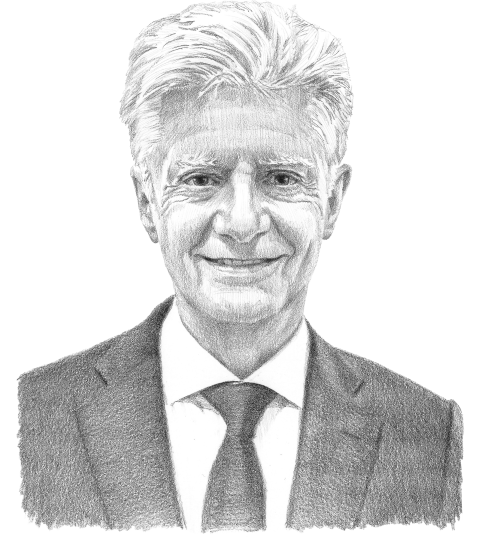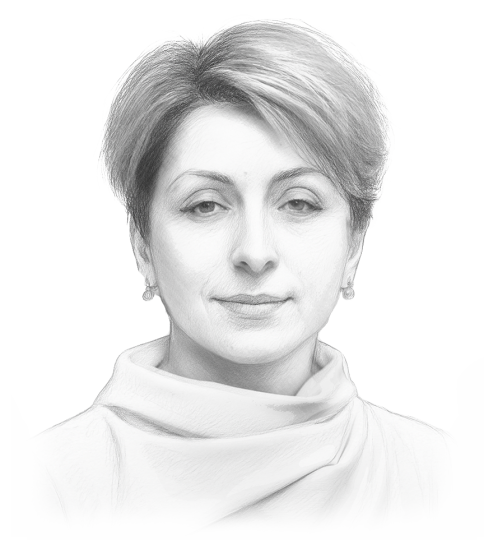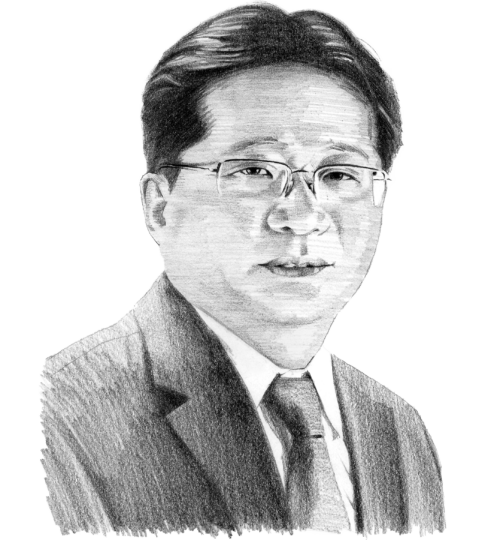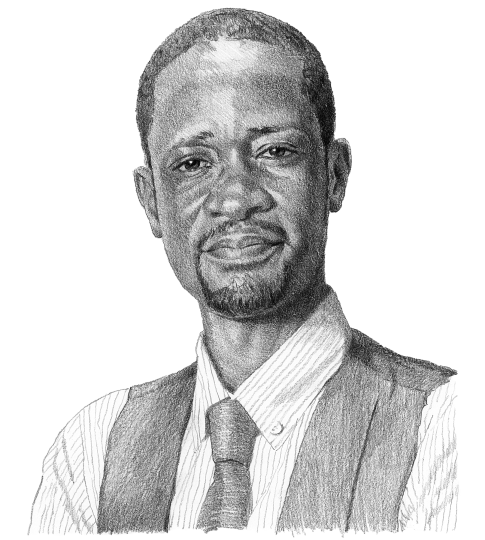Turkey and the West return to the table
Turkey is strengthening ties with Europe and the U.S., balancing its regional ambitions, NATO role and economic growth, as the West reengages in talks.
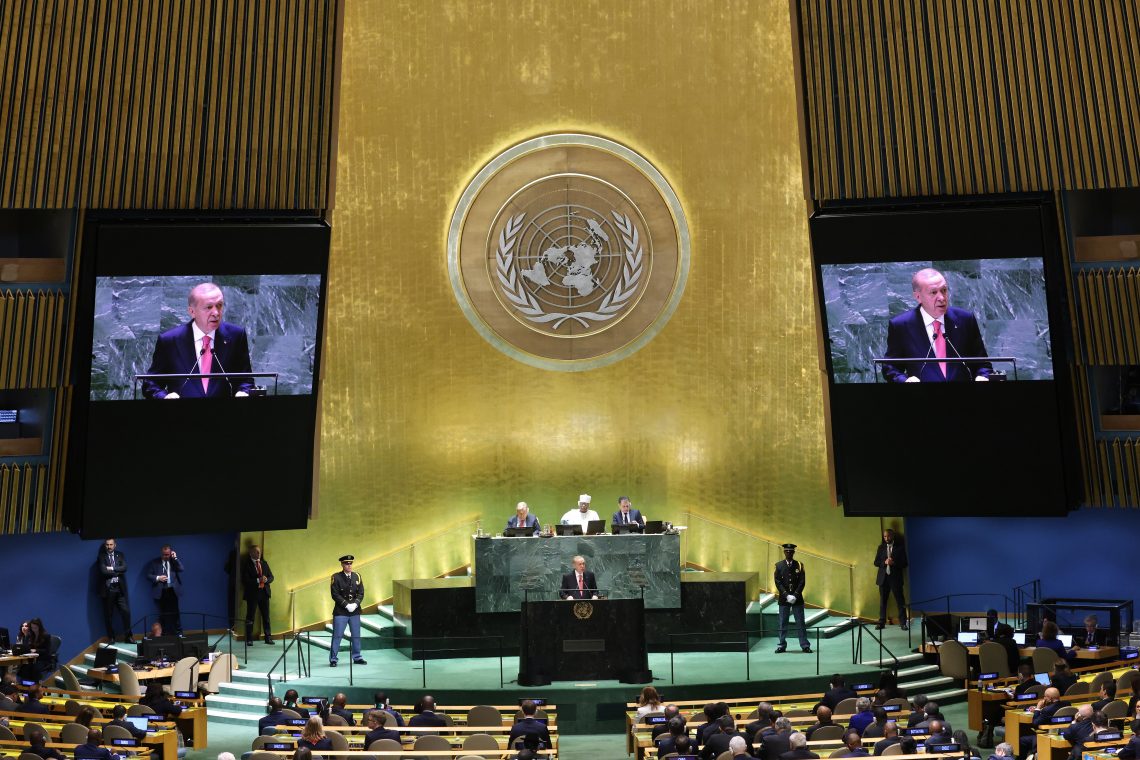
In a nutshell
- Erdogan’s approach seeks to restore a strong U.S.-Turkey partnership
- Ankara is playing a mediator role in the Ukraine-Russia peace negotiations
- The West again recognizes Turkey as influential and indispensable
- For comprehensive insights, tune into our AI-powered podcast here
Ankara is reconsidering its recent policies, particularly toward Europe and the United States. This shift follows a decade (2012-2022) characterized by frequent acrimonious disagreements and sanctions imposed on Turkey.
There has long been, and theoretically still is, a list of concerns that Western nations hold regarding Turkey. These issues include its democratic practices and rule of law, its statements on managing migration flows from Africa and Asia into Europe, its growing ties with Russia, its support for pro-Global Majority policies, its leadership of the Organisation of Islamic Cooperation and its pointed criticisms of Israel’s regional policies, especially toward Palestine.
Throughout the decade, similar challenges and frustrations were also prevalent on the Turkish side. Ankara adapted its strategies, pursuing a broader range of options, such as developing its own defense industry and military capabilities, and enhancing its diplomatic efforts, particularly in the Middle East and Africa.
Recent developments have strengthened Ankara’s international standing, signaling Turkey’s shift toward deeper engagement with the West on more equal terms.
Turkey-West relations breakdown: 2012-2022
The initial warm relationship between Turkey and Western countries after Recep Tayyip Erdogan became prime minister in 2002 (and then the first directly elected president in 2014) started to fade about a decade later, when he began to push back against the military’s and opponent Fethullah Gulen’s influence and initiated European Union accession talks. Tensions grew notably between Prime Minister Erdogan’s AK Party and its former partner, the movement of Gulen, a preacher who was living in exile in the U.S. until his death in October 2024. This rift intensified ahead of the municipal elections in early 2013, with Western governments expressing sympathy for Gulen’s proclaimed fight against corruption.
In the summer of 2013, widespread protests lasting several weeks erupted in many cities, initially against a construction project in Istanbul’s Gezi Park, igniting a nationwide wave of anti-government demonstrations. Police eventually dispersed these protests using tear gas and water cannons, amid clashes with demonstrators.

Soon after, with the rise of the Islamic State (also known as ISIS) in Iraq and Syria, a massive wave of refugees fled, many transiting through Turkey to Europe, while Ankara mobilized the Turkish diaspora in Europe to support its geopolitical objectives. Turkey had to accommodate around 4 million refugees, primarily from Syria. Many thousands more moved onward to EU countries in search of a better life, with Germany as a major destination. This was largely due to Chancellor Angela Merkel’s encouraging stance, famously stating, “Wir schaffen das!” (We can manage it). Consequently, the relationship between the West and Turkey further deteriorated.
A two-year truce with militants of the Kurdistan Workers’ Party (PKK) collapsed in 2015 and bombings in Ankara and Istanbul, also by Islamic State militants, became frequent.
Turkey faced severe threats, not least from ISIS militants who had seized large areas in northern Syria and Iraq’s Mosul region and who frequently crossed the 900-kilometer Syrian border into Turkey. Russian aircraft conducted daily combat operations near the border and Western pressure on Ankara mounted to allow Kurdish fighters – often with ties to the PKK – to use its territory to defend the Syrian border town of Ain al-Arab (“Kobane” in Kurdish and in Western media).
In the southeast, the PKK took control of several Turkish border towns during the war in Syria, linking them with Kurdish “autonomous zones” established by their Syrian partners. The Turkish army ultimately quelled this uprising with decisive action, while Turkish courts took action against a number of Kurdish-origin politicians accused of links with the PKK.
In the following years, Kurdish fighters in Syria solidified their “autonomous region,” forming what is now known as the Syrian Democratic Forces, which received support from U.S. troops and was viewed rather positively in the EU for helping keep ISIS at bay.
Turkey’s reluctance to support pro-Kurdish fighters, due to their alleged ties to the PKK, had strained relations with European nations. The military coup attempt on July 15, 2016, allegedly orchestrated by Gulen, was the tipping point. Many in Turkey perceived the Western response to this coup attempt as half-hearted and inadequate. By that time, trust between Turkey and the EU had already begun to fray. The West’s somewhat open support for the Kurds, despite the PKK being designated as a terrorist organization, only added to the stress in relations.
NATO partners supplied Ankara with a few Patriot missile batteries to bolster its defenses against Syrian incursions. These systems were operated by personnel from the lending countries, in line with NATO protocols. This situation contrasted from the provision of multiple Patriot defense systems to Ukraine, a non-NATO country facing active conflict with Russia.
In 2019, the U.S. halted F-35 combat jet deliveries, which Turkey codeveloped and partly funded, after it received Russia’s S-400 missile defense system. Ankara’s decision to buy the S-400 military batteries to safeguard its capital sparked friction with NATO allies, especially the U.S., France and Greece, due to potential risks to alliance interoperability. This move further eroded trust between Turkey and the U.S. Washington imposed sanctions on Turkish individuals and entities for alleged violations involving dual-use goods transfers to Russia. The political climate among Brussels, Washington and Ankara remained clouded until the early 2020s.
However, during this time, Turkey’s defense industry developed capabilities in drone technology and advanced weaponry. Over the last decade, the country has become a leading exporter of unmanned aerial vehicles, with Baykar exporting to over 30 countries by the end of 2023. Turkish – and Israeli – drones accounted for Azerbaijan’s 2023 success in reconquering its Nagorno Karabach province. Recently, President Erdogan announced an agreement to export 48 domestically produced Kaan fighter jets to Indonesia, marking the first export deal for the newly developed aircraft.

Ankara’s vital role in NATO: 2022 and beyond
Since Russia’s invasion of Ukraine in 2022, Turkey has played a significant role in NATO, contributing to military and diplomatic efforts. As the EU grapples with mounting economic challenges, its relationship with Turkey is undergoing a reassessment in Brussels and across EU capitals. This shift is occurring despite Ankara’s ongoing economic crisis and the lackluster performance of President Erdogan’s AK party in municipal elections, not to mention the tumultuous state of its domestic politics.
Istanbul Mayor Ekrem Imamoglu, a key opposition figure and a leading presidential candidate, was arrested in March on corruption charges, triggering widespread protests and deepening tensions with the EU. However, European leaders expressed more restrained criticism than in previous cases, possibly prioritizing strategic cooperation.
There is no doubt that Turkey has taken on an essential role in efforts to end or ease the war in Ukraine. By adhering to traditional principles of neutrality, it has managed to bring the Russians and Ukrainians to the table to negotiate peace and secure free passage of cargo ships.
In December 2024, Ahmed al-Sharaa, a long-time ally of Ankara, took the helm in Damascus, likely as a result of a collaborative agreement involving Turkey, the U.S. and possibly other international players. The lifting of U.S. sanctions on Syria, and, consequently, those from the EU, is expected to provide a significant boost to the Turkish economy and ease pressure as many Syrian refugees begin to return home from Turkey. The announcement of the PKK’s dissolution marks a significant milestone, signaling the conclusion of a 40-year struggle against the Turkish state.
With Donald Trump’s return as president, U.S.-Turkey relations may evolve. During Mr. Trump’s first term (2017-2021), he and President Erdogan found common ground, and today they share a mutual goal: to bring the war in Ukraine to a swift conclusion. As a result, Turkey has emerged as a crucial player in the effort to achieve peace in Ukraine.
Key influence points in Turkey-EU-U.S. relations
Ankara’s relationship with Brussels and Washington involves mutual leverage and interdependence. The U.S. and Europe can significantly influence Turkey’s economy and, to some extent, its defense capabilities. However, this relationship is not one-sided, as Turkey plays a critical role in the trade of indispensable goods, creating a two-way economic and security dynamic.
Turkey’s strategic importance is significant, though underrecognized in Western policy discussions. It is a G20 member with a population of 85 million and a relatively young demographic, complemented by a 5 million-strong diaspora in Europe, making it a relevant global player. Its economy is deeply intertwined with the EU, fostering mutual dependency.

Beyond Europe, Turkey is an influential actor in Africa, the Middle East, Central Asia and the Balkans, serving as both a vital partner and a potential rival. In Africa, Turkey’s growing presence is noted by the EU as an opportunity for cooperation, particularly after France’s retreat from its traditional strongholds, which it had held for centuries in West Africa and the Sahel. If managed wisely, this shift could strengthen EU-Turkey cooperation, solidifying partnerships with member states. However, mismanagement risks further antagonism.
Ankara’s soft power amplifies its global presence. Through an extensive embassy network, particularly in Africa, and initiatives like Turkish language schools operated by the Maarif foundation (formerly the Gulen network), TRT International and high-profile events such as the Antalya Diplomacy Forum, Turkey wields considerable diplomatic influence. The fifth iteration of the forum in April brought together presidents, ministers and experts, including the foreign ministers of Russia and Ukraine. Yet, the EU’s limited participation in such events reflects cautious engagement among some members and European Commission officials.
Read more on Turkey
- A dream deferred: Turkey’s unfulfilled European hopes
- Signs of an increasingly flexible Turkey in Africa
- If Russia and Ukraine make peace, Turkey can help sustain it
European diplomacy increasingly shies away from traditional engagement, with some representatives limiting contact with diplomats from sanctioned countries like Russia. This caution sometimes affects relations with Turkey, placing it under a de facto contact ban in certain Western circles.
Despite these challenges, Turkey’s role becomes indispensable during crises. Whether confronting the rise of ISIS, managing the migrant crisis or responding to Russia’s invasion of Ukraine, European leadership consistently reverts to pragmatic cooperation with Ankara. In these moments, Turkey is recognized as the oldest EU candidate country, a long-standing Customs Union partner and a reliable NATO ally since 1952.
Scenarios
Likely: The EU eyes strategic partnership with Turkey
Considering Turkey’s recent foreign policy developments, it seems likely that Brussels might seek to accommodate Ankara, sidelining criticisms regarding its democratic practices and President Erdogan. Europe may follow Washington’s lead in fostering relations with Turkey, as missing out on potential business opportunities related to Syria and neighboring countries could be a major drawback.
Brussels could fulfill its previous commitments by resuming regular high-level meetings with Ankara. Furthermore, a well-executed modernization of the EU-Turkey Customs Union could benefit both parties. Visa liberalization, or at least an easing of the rigid visa-issuance process, is a simple way for Europe to show gestures of goodwill, although it is unlikely.
Cyprus, Greece and France will be particularly vigilant and keen to ensure that the EU does not move too quickly. Brussels has little choice but to at least continue to muddle through, keeping Turkey halfway content, like its slow-moving process of integrating the non-EU Balkan countries.
Possible, but less likely: Turkey’s global influence increases
Progress in resolving conflicts in Ukraine, Palestine and the wider Middle East could enhance Turkey’s foreign policy influence. Given its geographic proximity to Ukraine and the region surrounding Israel, Turkey’s standing and options will depend on the outcome of the unfolding events. In the case of some sort of stabilization, the extensive reconstruction requirements in Syria alone could make Turkey increasingly vital to the West, especially to Europe.
This scenario hinges on several uncertain assumptions, any one of which could jeopardize its outcome. However, given the continuing turmoil in the Middle East, the likelihood of President Erdogan and the AK party maintaining their political grip on the country increases. Nonetheless, this scenario presents a fundamental limitation in the EU-Turkey relationship, as concerns about the AK leadership and their sharp and open criticism of Israel’s prime minister in some EU countries may persist.
Least likely: Turkey comes under significant pressure because of global conflicts
If fighting and tensions in Ukraine, Israel, Iran or among major powers spiral out of control, Turkey might be compelled to take a stance or find itself in an escalating political conflict with Israel. However, honoring its NATO membership and strengthening its relationship with Washington are likely to remain Turkey’s top priorities. Within Europe, where Turkey has a number of discreet allies and a substantial diaspora, it will likely navigate these relationships more smoothly. Yet, major challenges may still arise, primarily due to Turkey’s geographical position.
Contact us today for tailored geopolitical insights and industry-specific advisory services.
